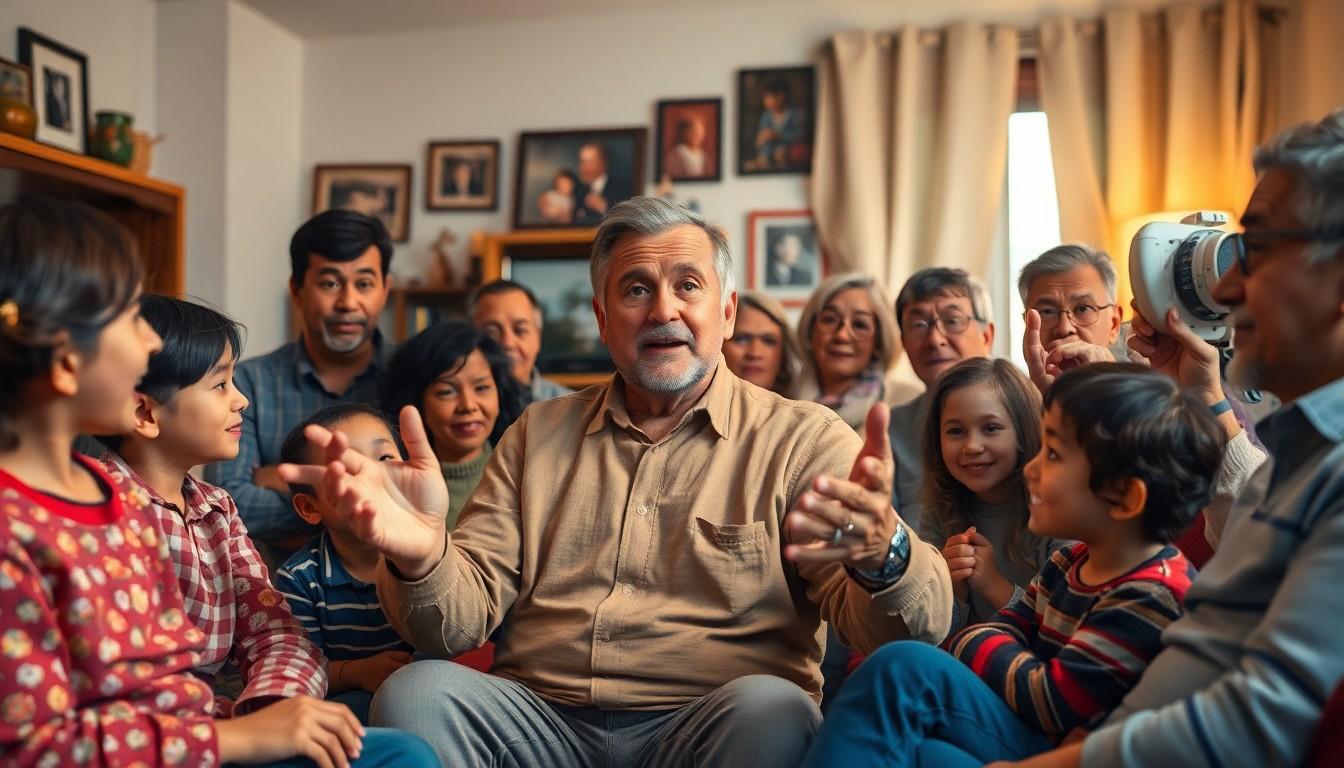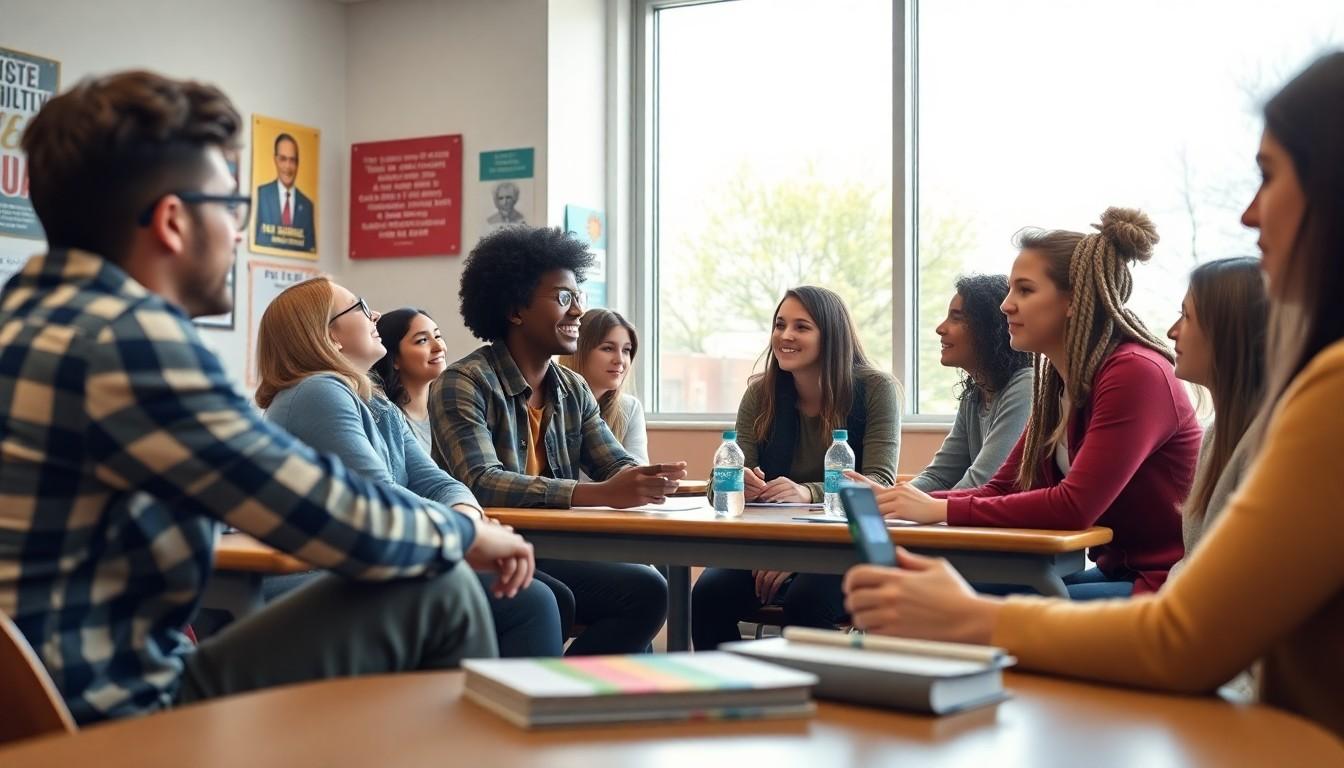The Best Fluffy Pancakes recipe you will fall in love with. Full of tips and tricks to help you make the best pancakes.

Political Socialization Meaning: Discover How Your Beliefs Are Shaped
Political socialization is that fascinating process that shapes how individuals form their political beliefs and values. From childhood conversations over dinner to heated debates at family gatherings, the influences are everywhere. It’s like a giant social experiment where family, friends, media, and education all play their part in crafting a person’s political identity.
Ever wondered why your uncle insists on sharing his conspiracy theories at every holiday dinner? That’s political socialization in action! Understanding this concept not only sheds light on why people think the way they do but also highlights the power of social influences in shaping opinions. Dive into the world of political socialization and discover how it molds societies, one dinner table discussion at a time.
Political Socialization Meaning
Political socialization refers to the process by which individuals acquire their political beliefs and values. This ongoing process plays a crucial role in shaping a person’s political identity. It takes place through various influences that include family dynamics, educational experiences, and media exposure.
Family often serves as the first source of political socialization. Discussions during family gatherings can significantly impact an individual’s understanding of political issues. Educational institutions also play a vital role, providing students with knowledge about civic responsibility and governance.
Various media platforms contribute to political socialization as well. News outlets, social media, and entertainment can all shape perceptions and political opinions. People often engage with multiple sources of information, leading to a more nuanced understanding of political matters.
Peer interactions and social networks further influence political socialization. Friends and colleagues share their perspectives, helping to refine or challenge existing beliefs. Personal experiences, such as community involvement or activism, also shape political views, providing practical insights into civic engagement.
Cultural factors and societal norms are additional elements that impact political socialization. These factors contribute to the diversity of political beliefs across different demographics. Understanding the meaning of political socialization allows for a deeper recognition of how individuals form their political identities and the broader implications of these influences on society.
Key Components of Political Socialization

Political socialization involves various influences that shape an individual’s political beliefs and values. Understanding these components reveals how society impacts political identities.
Family Influence
Family acts as the primary agent of political socialization. Through conversations during family meals or gatherings, political opinions often emerge. Parents frequently influence children’s early perceptions of government and civic engagement. Shared values and discussions provide a foundation for political thought. Children absorb attitudes toward political issues, which can result in similar viewpoints across generations.
Educational Systems
Educational institutions contribute significantly to political socialization. Schools teach students about civic duties, government processes, and the importance of participation in democracy. Classes covering history and social studies provide essential knowledge necessary for informed citizenship. Through group discussions and projects, students engage with diverse perspectives that encourage critical thinking. Exposure to different political views shapes students’ understanding and can challenge their pre-existing beliefs.
Media’s Role
Media serves as a powerful force in political socialization. Various platforms, including television, social media, and news websites, deliver constant streams of information. Individuals receive updates on current events that influence their views and opinions. Journalistic reporting often frames narratives, which affects public perception of political issues. Given the rise of social media, discussions among peers also play a crucial role in shaping opinions and mobilizing political action.
The Process of Political Socialization
Political socialization occurs through various stages, deeply influencing individual beliefs and values.
Primary Socialization
Primary socialization typically occurs within the family setting. Parents play a crucial role in shaping children’s early political attitudes. Conversations about government, civic responsibilities, or current events often develop foundational beliefs. Family traditions and discussions also impart values that guide political orientations. Exposure to specific viewpoints influences how children perceive their role in society and democracy. Early experiences in family settings create the groundwork for future political engagements.
Secondary Socialization
Secondary socialization builds on those formative experiences by introducing individuals to broader influences. Educational institutions, peer groups, and media become significant during adolescence and adulthood. Schools expose students to civic knowledge, such as government functions and democratic principles. Peer interactions challenge or reinforce existing beliefs through debate and collaboration. Various media outlets shape perceptions by continuously presenting information and diverse viewpoints. Exposure to these influences encourages people to refine their political identities and adapt to a complex social landscape.
Factors Influencing Political Socialization
Political socialization arises from various influences that shape individuals’ political beliefs and values. These factors encompass cultural background, socioeconomic status, family, education, and exposure to media.
Cultural Background
Cultural background plays a crucial role in political socialization. Cultural norms, traditions, and values often shape individuals’ perspectives on governance and civic engagement. These cultural influences can include religious beliefs, regional customs, and ethnic identities, all of which contribute to the formation of political opinions. For instance, individuals from collectivist cultures may prioritize community well-being over individual rights. Additionally, cultural narratives may inform attitudes toward authority and participation in democratic processes. By recognizing the impact of cultural background, one can better understand the diversity of political beliefs within different communities.
Socioeconomic Status
Socioeconomic status significantly affects political socialization. Economic factors shape access to education, resources, and information, ultimately influencing political perspectives. Individuals from higher socioeconomic backgrounds often receive more exposure to political discourse and civic engagement opportunities. For example, access to quality education can foster critical thinking and awareness of political issues. Conversely, those from lower socioeconomic backgrounds may experience challenges in accessing information or participating in civic activities. This disparity highlights the intersection of economic conditions with political beliefs and engagement levels, illustrating the importance of socioeconomic factors in shaping political identities.
Conclusion
Political socialization is a vital process that shapes individual beliefs and values regarding governance and civic engagement. By understanding the various influences at play—such as family, education, peers, and media—it’s clear how these factors contribute to the formation of political identities. Recognizing the impact of cultural background and socioeconomic status further enriches the discussion, highlighting the diverse experiences that inform political perspectives. As society continues to evolve, awareness of political socialization will be essential for fostering informed and engaged citizens capable of contributing to democratic processes.
